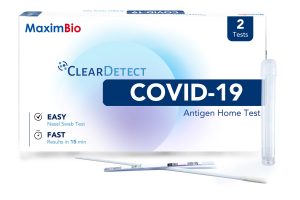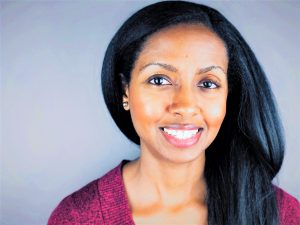
IndyGeneUS AI and the Blockchain-Secured Genomic Data Marketplace
IndyGeneUS AI, which is harnessing the power of data mining and artificial intelligence to expedite the development and manufacturing of targeted therapeutics, won the Johnson & Johnson Innovation Veterans Lead QuickFire Challenge: Innovations by Vets, which will be used to scale its bioinformatics “GenēUS Discovery Platform.”
The QuickFire Challenge award, which aims to advance healthcare innovation for the benefit of the military community, will enable the minority- and service disabled veteran-owned company to scale its GenēUS Discovery Platform, the largest blockchain encrypted repository of indigenous and diasporic African clinical and multi-omics data to rapidly expand its capabilities. Using the proprietary technology, IndyGeneUS AI aims to detect novel signature sequences, identify biomarkers, and calculate polygenic risk scores by integrating multi-omics data, electronic health record data, as well as other textual information such as scientific manuscripts.
The grant of up to $250,000, was awarded by J&J and Bunker Labs, a national nonprofit organization supporting entrepreneurship of former military personnel. In addition to the monetary sum, the grant awardees are provided access to the Johnson & Johnson Innovation – JLABS ecosystem, and mentorship from experts across the Johnson & Johnson Family of Companies.
In addition to winning the QuickFire Challenge, IndyGeneUS AI also became a resident at JLABS @ Washington, DC at the beginning of the month. To aid in this mission, IndyGeneUS AI will provide workforce economic development to engage minority young men and women who desire to learn more about genomics and driving precision care through careers in biotech.
IndyGeneUS won the award after pitching the “GenēUS Discovery Platform” to a panel of judges, which included both Johnson & Johnson Innovation and Bunker Labs executives. The company focuses on whole genome sequencing which utilizes multiple next-generation DNA sequencing platforms and methodologies to identify genetic drivers of conditions disproportionately impacting African-American, Latino and indigenous populations. Yusuf Henriques, founder, and chief executive officer of IndyGeneUS AI, called the grant a “dream come true” as it will enable the company to move forward with its mission.
“Now, I have an opportunity to identify novel cell & gene therapies that will hopefully address health disparities and rare diseases like retinitis pigmentosa (RP), which my twin daughters were diagnosed with in 2014. This is my opportunity to deliver on the promise that I made my girls to find better treatment options or a cure,” Henriques said in a statement.
The GenēUS Discovery Platform is designed to drive precision health equity and solve two problems: it provides scientists with diverse genomic data to conduct research, and allows individuals an opportunity to generate revenue each time their data is queried for research insights.
“We are leveraging genetic diversity via large-scale whole-genome sequencing to advance the understanding of the causes of human biology, health, and disease,” IndyGeneUS AI Chief Scientific Officer Bradford Wilson said in a statement. “This will lay the foundation for precision therapeutics to reduce or eliminate health disparities globally.”
A former U.S. Army combat medic, Henriques launched IndyGeneUS AI to address the lack of minority inclusion in clinical trials. While serving at the U.S. Food and Drug Administration, he said in previous interviews that he was privy to clinical data presented to the regulatory agency for potential drug and medical approvals. While the drugs were for different disease indications, he said they all lacked participation from a diverse patient population – even for drugs that were primarily aimed at minority patient populations.
Lenore Karafa, Board Member President of Bunker Labs, expressed excitement regarding the mission of IndyGeneUS AI. Karafa touted the company’s efforts to eradicate health disparities while supporting of supporting the mission and vision of U.S. veterans.
As Henriques has explained to BioBuzz before, IndyGeneUS is using state-of-the-art next-generation sequencing technology to generate a whole-genome sequence database. According to data from IndyGeneUS, approximately 3% of genetic data collected across the globe includes people of African descent. At the same time, people who have African ancestry make up approximately 20% of the global population. That 20% population includes some of the most genetically diverse people, IndyGeneUS said. Failing to include that diverse population in research ultimately limits the capabilities of precision medicine that are aimed at specific genetics, Henriques said.





